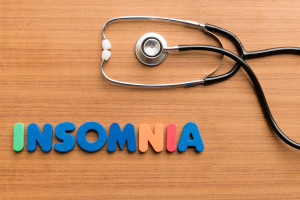 Have you ever had trouble getting to sleep? Do you have pain that won’t let you get comfortable in bed? Do unresolved issues from the day keep you awake? If you’ve answered yes to any of these questions, you are not alone. Millions of people suffer from a condition called insomnia.
Have you ever had trouble getting to sleep? Do you have pain that won’t let you get comfortable in bed? Do unresolved issues from the day keep you awake? If you’ve answered yes to any of these questions, you are not alone. Millions of people suffer from a condition called insomnia.
Insomnia refers to the inability to get to sleep or to remain asleep. This can stem from physiological or psychological problems. Depression, anxiety, physical illness, foods that you eat, and your lifestyle can all lead to insomnia.
- Depression, anxiety, and stress can all prevent a good night’s sleep. These can be the cause of insomnia, but not getting enough sleep can magnify depression and anxiety as well. This creates a cycle between insomnia and stress that is difficult to break.
- Medical issues are definitely a culprit for loss of sleep. Some ailments that might contribute to your sleeplessness: asthma/respiratory problems, back pain, pregnancy, sinus issues, sleep apnea, and restless leg syndrome. Chronic pain stemming from a medical issue can greatly affect your sleep habits.
- If you work a variety of shifts at your job that are not consistent, your body’s sleep cycle can get thrown off. Drinking too much caffeine or the intake of too much nicotine can inhibit your ability to get to sleep. Taking naps during the day are a culprit in reducing the feeling of being tired at night. Some people are able to nap and still get a good night’s rest, while others struggle to fall asleep if having napped earlier in the day.
If you don’t get enough sleep every night, it can affect your daily life in many ways. Not only will you be groggy and sluggish during the daytime, complications can arise from insomnia. Irritability, slower reaction times during driving which can increase the risk of accidents, obesity, substance abuse, heart issues such as an increase in your blood pressure, decreased work performance, and personal relationship struggles.
If you have difficulty sleeping, contacting a sleep physician is in your best interest. Search for a physician at ipalc.org to be evaluated for insomnia.
Share on Facebook



 Southwest Florida Medicine.com is dedicated to bringing you the very best health information available today!
Subscribe or check back regularly!
Southwest Florida Medicine.com is dedicated to bringing you the very best health information available today!
Subscribe or check back regularly!